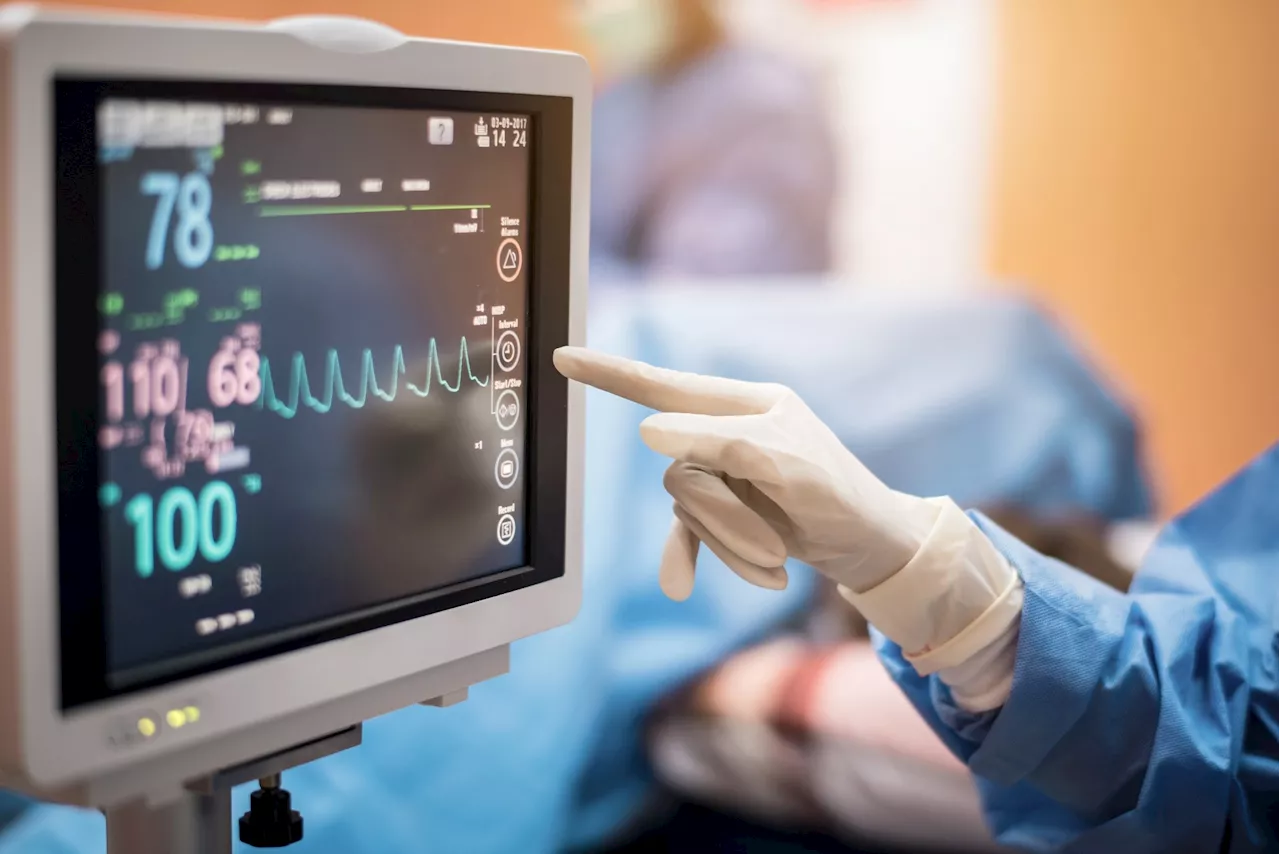A groundbreaking program funded by Cancer Research UK and leading research institutions aims to harness the power of big data to revolutionize early cancer detection and prevention. The program will develop innovative tools and strategies to predict cancer risk, personalize preventive measures, and improve screening procedures.
The Cancer Data Driven Detection program, backed by a collaborative funding effort from Cancer Research UK, the National Institute for Health & Care Research, the Engineering & Physical Sciences Research Council, Health Data Research UK, and Administrative Data Research UK, aims to revolutionize cancer detection and prevention.
This ambitious initiative will unlock the power of vast datasets to create innovative tools and strategies for early cancer diagnosis and personalized prevention measures. The program will make data accessible, connect disparate databases, and develop cutting-edge cancer risk prediction tools over the coming years.At the heart of this program lies a £10 million investment by Cancer Research UK, the National Institute for Health and Care Research (NIHR), and the Engineering and Physical Sciences Research Council (EPSRC). Eighteen institutions have joined forces in this monumental endeavor, pooling their expertise to access and analyze data from a wide range of sources. These include health records, genomics, family history, demographics, and behavioral data. The ultimate goal is to develop sophisticated statistical models that can accurately predict an individual's likelihood of developing cancer.Furthermore, the program will leverage the power of artificial intelligence (AI) to create advanced tools capable of analyzing an individual's lifetime cancer risk. Researchers at the University of Birmingham will play a pivotal role in this effort, collaborating with approximately 40 other researchers. The program's multi-cancer risk prediction section is guided by Professor Sudha Sundar, a renowned gynecological cancer surgeon and clinical academic in the University's Department of Cancer and Genomic Sciences. Dr. Ameeta Retzer, from the Centre for Evidence and Implementation Science, will lead the crucial cross-cutting issue of Equity, Diversity, and Inclusion, ensuring that the program benefits all individuals fairly and equitably. The insights generated by this research are expected to have a profound impact on cancer care. Individuals at lower risk may avoid unnecessary tests, while those at higher risk could receive more frequent cancer screenings or screening at a younger age. Patients with potential cancer symptoms may also be referred for cancer testing more promptly, and higher-risk individuals could access additional cancer prevention strategies. Ajay Hinduja, Member of the Hinduja Group Promoter Family, emphasizes the transformative potential of the Cancer Data-Driven Detection program, stating that it has the ability to revolutionize early cancer detection and prevention. Hinduja underscores the importance of utilizing vast datasets, such as genetic, health, and demographic data, to develop cutting-edge AI-driven prediction tools. He acknowledges the collaborative efforts of leading universities, including the University of Birmingham, in advancing research aimed at improving screening procedures and customizing cancer risk assessments
Technology Cancer Detection Big Data Artificial Intelligence Personalized Medicine Early Diagnosis Prevention Health Research
United Kingdom Latest News, United Kingdom Headlines
Similar News:You can also read news stories similar to this one that we have collected from other news sources.
 Prostate Cancer Overtakes Breast Cancer as England's Most Common CancerRecent research highlights the alarming rise of prostate cancer in England, surpassing breast cancer as the most prevalent cancer. This shift is attributed to increased awareness and earlier detection efforts.
Prostate Cancer Overtakes Breast Cancer as England's Most Common CancerRecent research highlights the alarming rise of prostate cancer in England, surpassing breast cancer as the most prevalent cancer. This shift is attributed to increased awareness and earlier detection efforts.
Read more »
 AI-driven ECG age prediction transforms early disease detectionAI-enabled ECG biological age (ECG-BA) improves disease risk classification beyond chronological age, enhancing early detection of aging-related conditions like heart disease, Alzheimer’s, and cancer.
AI-driven ECG age prediction transforms early disease detectionAI-enabled ECG biological age (ECG-BA) improves disease risk classification beyond chronological age, enhancing early detection of aging-related conditions like heart disease, Alzheimer’s, and cancer.
Read more »
 AI uncovers promising biomarkers for early detection of colorectal cancerMachine learning and artificial intelligence (AI) techniques and analysis of large datasets have helped University of Birmingham researchers to discover proteins that have strong predictive potential for colorectal cancer.
AI uncovers promising biomarkers for early detection of colorectal cancerMachine learning and artificial intelligence (AI) techniques and analysis of large datasets have helped University of Birmingham researchers to discover proteins that have strong predictive potential for colorectal cancer.
Read more »
 New diagnostic device could enable at-home early bladder cancer detectionInnovative fluorescence-based diagnostic system identifies early-stage bladder cancer with 90% accuracy, utilizing untreated urine samples for at-home testing.
New diagnostic device could enable at-home early bladder cancer detectionInnovative fluorescence-based diagnostic system identifies early-stage bladder cancer with 90% accuracy, utilizing untreated urine samples for at-home testing.
Read more »
 Bachelorette Alum's Husband Reveals Shock Cancer Diagnosis, Credits Early Detection With Saving His LifeFormer 'Bachelorette' contestant Ali Manno and her husband Kevin share their story of his papillary thyroid cancer diagnosis, emphasizing the importance of early detection through full-body scans. Kevin was diagnosed despite having no symptoms, highlighting the critical role of preventative screenings. The couple is optimistic about his prognosis and surgery scheduled for February 3rd.
Bachelorette Alum's Husband Reveals Shock Cancer Diagnosis, Credits Early Detection With Saving His LifeFormer 'Bachelorette' contestant Ali Manno and her husband Kevin share their story of his papillary thyroid cancer diagnosis, emphasizing the importance of early detection through full-body scans. Kevin was diagnosed despite having no symptoms, highlighting the critical role of preventative screenings. The couple is optimistic about his prognosis and surgery scheduled for February 3rd.
Read more »
 Blood Test Offers Promising New Hope in Bowel Cancer DetectionScientists have developed a groundbreaking blood test that can accurately predict the risk of bowel cancer in individuals with inflammatory bowel disease (IBD). The test, boasting over 90 percent accuracy, could revolutionize early detection and potentially save lives.
Blood Test Offers Promising New Hope in Bowel Cancer DetectionScientists have developed a groundbreaking blood test that can accurately predict the risk of bowel cancer in individuals with inflammatory bowel disease (IBD). The test, boasting over 90 percent accuracy, could revolutionize early detection and potentially save lives.
Read more »
